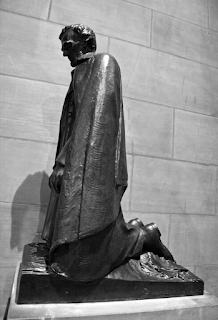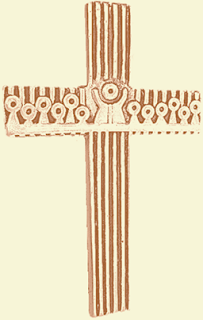Defending from Scripture the Three-fold
Communion Service as a Divinely-authorized, Biblical Ordinance
by the Rev. Terry L. Reese, Valley
GBC, Armagh, PA
I. Its Three Component Elements; their status as true
Ordinances.
Church Ordinances are characterized and
distinguished by a special criterion
of five distinct and necessary elements. If any of these elements
are missing, then the practice cannot properly be referred to as a New
Testament “ordinance.” On the other hand, if a certain practice has all
five of these elements, it should be recognized and observed by all of
God’s People as an official Ordinance of the Lord, designed to be universally
& continually perpetuated within His churches.
1.) A SPECIAL TIME for the institution of the Form,
which was late in our Lord’s
Ministry, after the rejection of His offer of the Kingdom unto
Israel. At this juncture, the theme of His Ministry shifted from “the
Kingdom of Heaven is at Hand” (Matt. 4:17) unto “I will build My Church”
(Matt. 16:18). The Ordinances are thus Dispensational
in nature. Note that Footwashing, the Eucharist, & the Lord’s Supper (i.e.,
Love Feast) are not inaugurated until the night of His betrayal, at the
Last Supper, and that a distinctively Christian
Baptism (as opposed to earlier Jewish Practices) is not inaugurated until just
prior to the Ascension (Matt. 28:19).
2.) Christ’s
Sovereign Authorization of the
Form as an Ordinance.
The Son of God is the Head of His
Church (Col. 1:18). An Ordinance must have
the Seal of Christ Himself, in terms of its authorization and its right to
perpetuation. The Sovereign Authority of Christ is recognized and declared in
association with the inauguration of all of the Ordinances traditionally
recognized as such by the historic Brethren Community (e.g., Footwashing: John
13:3, 12-17. Eucharist & Love Feast: 1 Cor. 11:17-34. Christian Baptism:
Matt. 28:18-19).
3.) A
Symbolic Meaning behind the Instituted Form. Ordinances
have a symbolic meaning—and are thus distinguished from works. By definition, they employ special symbols signifying
spiritual meanings (1
Cor. 11:26, John 13:10).
4.)The
spiritual reality symbolized must be VERY GREAT!
The Eucharist: Justification
(the Foundation of our Salvation). Luke 22:19-20.
Baptism: Regeneration (the Commencement of our Salvation).
Matt. 28:19, Rom 6:3-5.
Footwashing: Sanctification (the Progress and Continuance of our
Salvation). John 13:6-11, Eph. 5:26.
The Lord’s Supper/Love Feast: Glorification (the final Consummation of our
Salvation). Rev. 19:1-9.
5.) A
command for PERPETUATION (specific or clearly implied) is necessary. Without
the demand for perpetuation, a form could never be regarded as anything
more than a one-time historical incident. Ordinances are to be repeated by
us until Jesus comes. Such a command must be either directly stated or strongly implied if a given rite is to
be regarded as an actual, continuing Ordinance.
A) Baptism: Matt. 28:19—to be done to all
disciples.
B) The Eucharist: Luke 22:19, 1 Cor. 11:23-26
(“Take…eat…drink…do
this…”).
C) The Lord’s Supper/Love Feast: The command is clearly implied
in Paul’s complete linkage with and union unto the Eucharist (1 Cor. 11:17-34);
the Corinthians were severely admonished for desecrating a Holy Thing—the Love
Feast—by dishonoring much of what the Ordinance speaks to: the unbroken
Fellowship & Communion of the Saints. The fact of its very perpetuation in
the Church (also demonstrated in Jude 12 & in 2 Pet. 2:13) with the tacit
approval of the Apostles speaks loudly concerning the need for its continued
observance.
D) Footwashing: John 13:14-17; note a reference to its perpetuity
in 1 Tim. 5:10.
Note: History testifies that ALL of these forms were
perpetuated in the early Church by the Early Church Fathers—the very disciples
of the Apostles!

